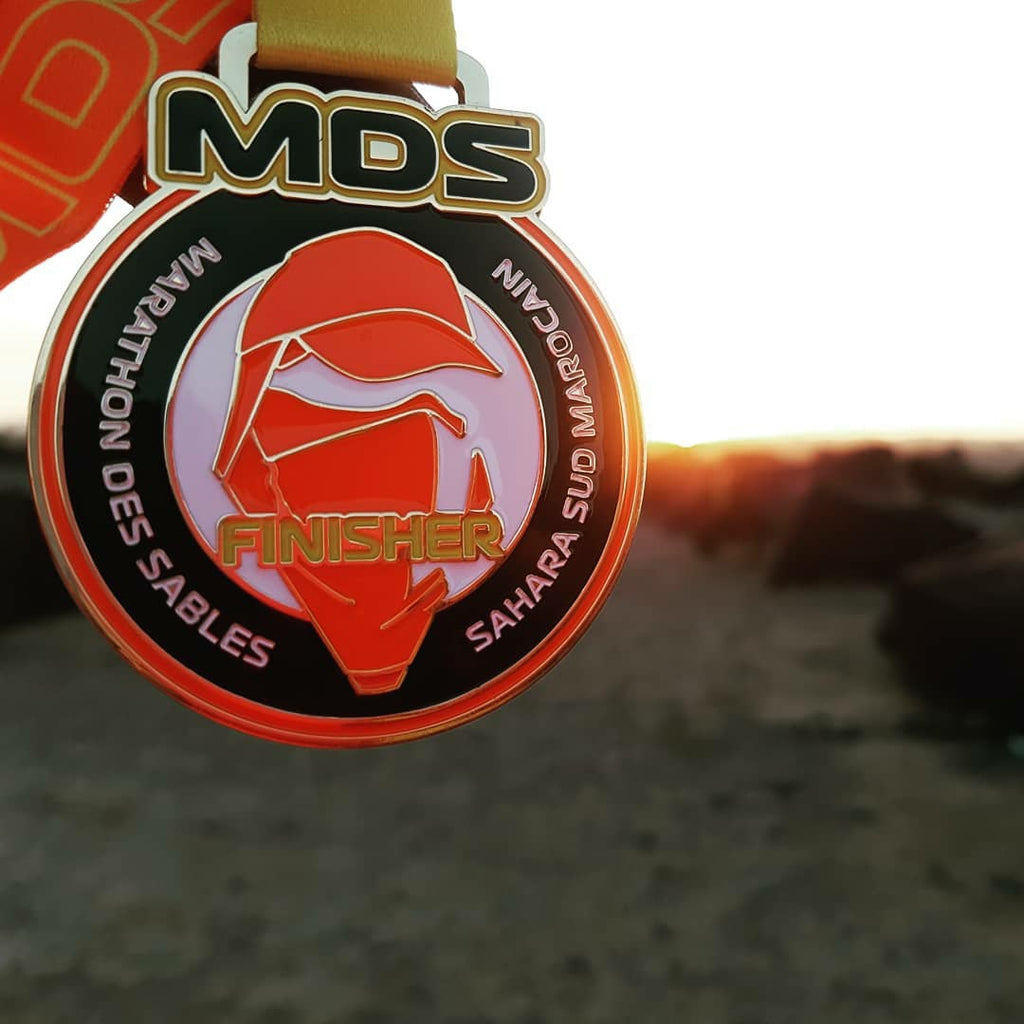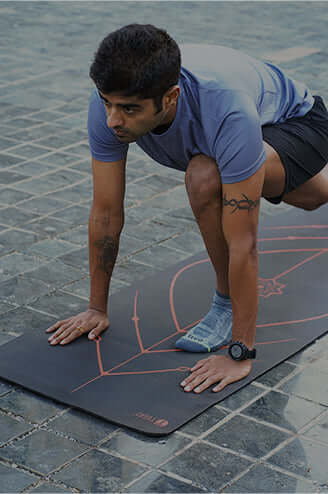Research scientist Arjun Krishnakumar is a passionate ultra-runner who completed a gruelling 250-km race across the Sahara. Here’s what life looks like for this everyday athlete on and off the trail.
While the marathon has for long been considered the ultimate test of human endurance, the ultramarathon pushes the limits of runners in a race much longer than the traditional length of 42.195 km. Arjun Krishnakumar belongs to this ever-growing group of runners — the ultra runners. Just a browse through Arjun’s Instagram feed (@ragingrunner) is proof of the near-impossible feats of the human body and mind.
The Mumbai-based ultra runner only just completed the Cordillera Mountain Ultra, a 50-km race in the Philippines, earlier in March this year and he’s already in the midst of preparing for the next set of trail races like the Matheran Endurathon (50 km) and Solang Valley Ultra (65 km). As he focusses on building strength and working on a few core areas ahead these races, Tego caught up with this passionate runner to find out what it really takes to get to the level of an ultra runner.
How and when did your interest in running begin?
I was always fascinated by people who ran marathons and wished I could do it one day, but it always seemed out of reach. In October 2008, when I was in Dublin for training as part of my PhD, I met a guy who had just run the Dublin Marathon. He was the first person I had met who had run a marathon, and just the fact that he wasn’t an elite athlete was an inspiration in itself. I started running in January 2009, exactly a year before my first marathon and I haven’t looked back since.
How many ultra runs have you done so far and which among them was the most challenging?
Until 2017, I had only run marathons and had done one trail half marathon. I started running ultra distances in 2018 to prepare for the Marathon Des Sables, a 250-km race across the Sahara Desert. My first trail race in 2017 was the Malnad Ultra (110 km), and since then I have run eight trail races. The most challenging was the Marathon Des Sables because of the enormity of it.
How did you prepare for your first race?
My first trail marathon was the Malnad Ultra (110 km) in Karnataka in October 2017. Unfortunately, I had lost my father a month earlier and my training was stalled for two months prior to that. The only training I got was about two weeks worth before the race. But I was determined to run as a dedication to him. Of course, it was a big struggle. The course is tough and I was in half a mind to quit at 50 km. But a few encouraging words from friends ensured that I didn’t quit. It took me 22 hours to finish (the cut-off was 24 hours).
You’re a scientist by profession with a PhD in biomedical science. What motivates you to take time out of your day to train?
I’ve spent over ten years in research labs, and I currently work for a digital healthcare company in clinical research. When I’m not running, I’m geeking out on science! Running has been a part of my life for such a long time that it has now become second nature to me. It’s my personal time and gives me time to align myself and my day. When you’re doing something you enjoy, the passion drives you. Yes, a lot of times, training runs can be difficult and you might not always enjoy them, but it is necessary to do the hard yards.
What’s your daily workout like?
I work out six days a week, which includes four days of running and two days of strength training. On weekdays, I train at about 5.30 am for an hour to an hour and a half, depending on my workout. And, depending on where I am in my training, I do one or two long runs on the weekend. The long runs range from 25 km to 50 km and I start these even earlier than my usual workouts. If I’m heading to a trail, then I normally wait for daylight.
What’s your favourite place to go running in the city? And when you travel?
I live in South Mumbai, so on weekdays I train around Worli or Marine Drive. On the weekend, I head to Sanjay Gandhi National Park or to the trails out of the city. I love to travel and in the past few years, my travels have been planned around races. So I pick a race I want to do and then travel that region post the race. If I do happen to travel without any race plans, I make sure to carry my running gear along with me and try to explore any trails around or even within the city I’m visiting.
How do you mentally prepare yourself before a big run?
An ultra run is all about the long distance and time. So, I try not to think about it all at once but break it down into small chunks. I try to focus on being in that moment. Normally, the trail routes are beautiful, so I aim to enjoy the trail and the run. Of course, since it’s a long duration, there are times when you do go through a tough patch. I make sure to tell myself to keep moving, one foot in front of the other. I also try to incorporate a few long runs on tired legs (either I do back-to-back long runs or a hard workout a day before) so that I am mentally fortified.
You follow a plant-based diet. Tell us more.
I used to be an ‘eggetarian’ until a couple of months ago. But I turned to a complete plant-based (vegan) diet since February 2019. It really does help with the running, and the health benefits of being vegan are well-documented. Above all, I believe animals hold the same place on earth as us humans. You’ll be surprised with the number of plant-based protein sources we have access to.
What advice do you have for our readers who wish to cover ultra distances?
Firstly, remember, it is a long distance and we all have plenty of time. Take it bit by bit. Build it up slowly. Don’t rush to cover big distances too soon. Secondly, don’t ignore strength training as it’s important for runners of all levels. It’s not just about piling on the miles, but it’s quality that matters. Building strength and working on muscles and strengthening the core helps to improve the quality of your runs and to avoid injury. Thirdly, training is not just about the runs and workouts; it includes nutrition, rest, recovery and sleep. Remember to plan and track your training to know where you stand and which areas you need to improve or change.
>Have you experienced any injuries along the way?
I’ve had two injuries — one was a hairline fracture on my foot about six years ago, possibly due to running too much too soon. The second was a glute and hamstring injury that happened last year post the Marathon Des Sables. It was more challenging and it took me four months to completely recover after consulting a physiotherapist and undergoing rehabilitation and realignment.
Some advice on how to avoid injuries?
Injuries are frustrating and you need to be patient and let your body recover fully before you start training again. Consulting a professional goes a long way as mismanagement will hurt more. To avoid injuries, it is best to not run too much too soon. Always start slow and low on the mileage and then build it up. If you have very little time to train for a race, don’t just up the distance because you need to catch up with the training. There is always the next race. If you haven’t run over 50 kms in each of the previous months and suddenly you decide to do that in a week, that’s a recipe for disaster.








